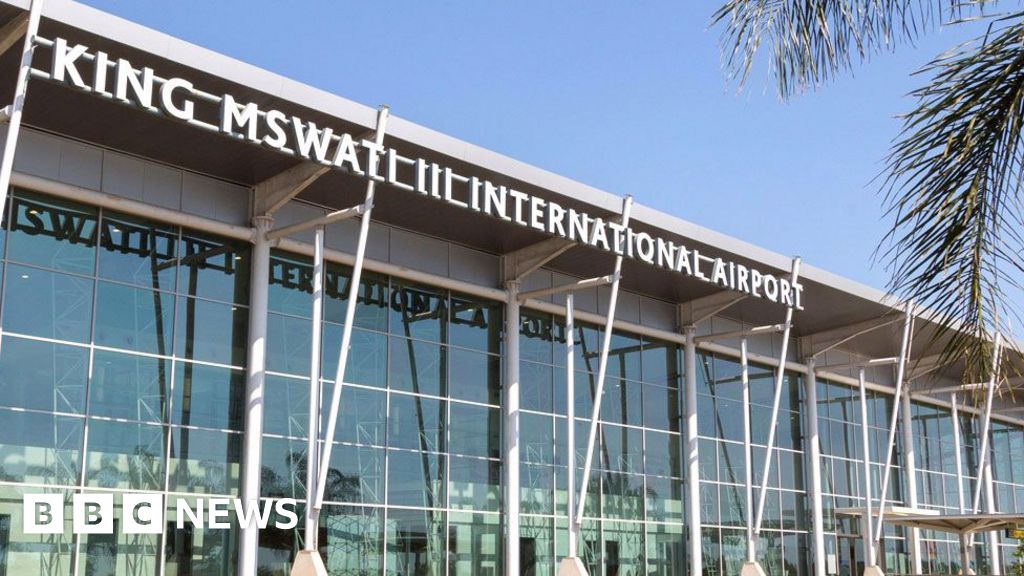US deports five 'barbaric' migrants to Eswatini

```html US Deportation of Convicted Criminals to Eswatini Sparks Controversy
The United States has deported five individuals convicted of serious crimes to Eswatini, raising concerns about human rights and the potential strain on the southern African nation's resources. The deportees, originating from Vietnam, Jamaica, Laos, Cuba, and Yemen, were convicted of offenses ranging from child rape to murder, according to the US Department of Homeland Security.
The move has drawn criticism from human rights groups and sparked debate within Eswatini, the last absolute monarchy in Africa, about the country's role in accepting individuals rejected by their nations of origin. The Eswatini government acknowledged the concerns but assured citizens that the deportees would be housed in isolated units and pose no threat.
Eswatini Assures Public Safety Amidst Concerns
"Five inmates are currently housed in our correctional facilities in isolated units, where similar offenders are kept. The nation is assured that these inmates pose no threat to the country or its citizens," stated government spokesperson Thabile Mdluli. She added that Eswatini and the US would collaborate with the United Nations' immigration agency to facilitate the deportees' eventual transit to their respective countries of origin.
Assistant Secretary Tricia McLaughlin of the US Homeland Security Department described the deportees as "uniquely barbaric" and claimed their home countries refused to take them back. Her statements, posted on social media platform X, have been criticized as inflammatory and lacking in nuance. The US has been actively seeking agreements with countries to accept deportees, including those with no prior connection to the host nation.
Concerns Over "Dumping Ground" for Criminals
The Swazi Solidarity Network, a pro-democracy group, condemned the deportation agreement. Spokesperson Lucky Lukhele told the BBC that Eswatini must not become a "dumping ground for criminals" and that the government has a responsibility to protect its citizens. The group also expressed concerns about the capacity and resources of Eswatini's prison system to manage such high-risk individuals.
Expert Analysis: A Complex Geopolitical Calculation
Dr. Sithembiso Nyoni, a political analyst specializing in Southern African affairs at the University of Cape Town, suggests that Eswatini's decision to accept the deportees is likely influenced by its economic dependence on the United States. "Eswatini is heavily reliant on trade with the US, particularly in the sugar sector. Accepting these deportees, however controversial, could be seen as a way to maintain favorable trade relations and avoid potential economic sanctions," Dr. Nyoni told BBC Africa. "However, it also raises ethical questions about the price of economic stability and the potential impact on Eswatini's reputation."
Historical Context: US Deportation Policies in Africa
The deportation of foreign nationals from the US to African countries is not a new phenomenon, but it has intensified in recent years. Under previous administrations, the US has faced challenges in deporting individuals to countries with which they have limited or no ties, leading to diplomatic tensions and legal battles. The Trump administration pursued agreements with several African nations to accept deportees, sometimes offering financial incentives or threatening visa restrictions.
In a related case, earlier this month, the US deported eight individuals to South Sudan after a court lifted restrictions on sending people to countries where they have no ties. This action prompted criticism from human rights organizations, who raised concerns about the safety and well-being of the deportees in a country grappling with conflict and instability. Last week, Nigeria firmly stated it would not accept deportees from the US, highlighting the growing resistance to these policies.
Ethical Considerations and International Law
Legal experts point to the complexities of international law regarding deportation, particularly the principle of non-refoulement, which prohibits states from returning individuals to countries where they face a risk of persecution, torture, or other serious harm. While the US asserts that the deportees do not face such risks in their countries of origin, critics argue that the process lacks transparency and adequate safeguards.
The Eswatini government has not disclosed whether any financial compensation was provided by the US as part of the deportation agreement. This lack of transparency has fueled speculation and further intensified public scrutiny of the deal.
Looking Ahead: Implications for Eswatini and the Region
The long-term implications of this agreement for Eswatini remain uncertain. The country's already strained resources and limited capacity to manage high-risk offenders could be further challenged. The incident also raises broader questions about the ethical responsibilities of smaller nations in accepting deportees from larger, more powerful countries.
Dr. Imani Nkosi, a specialist in African migration patterns at the African Union, adds, "This situation highlights the power dynamics at play in international relations. Smaller nations often find themselves in a difficult position, balancing economic interests with human rights considerations. The international community needs to address the root causes of migration and work towards more equitable and humane solutions." ```
Originally sourced from: BBC News Africa
